My Keto Diet Review from 2019: Thoughts After Three Years, Now Evolved
· Mike Roberto · 31 min read
After three years of keto dieting and a decade of low-carb, paleo dieting, I finally put a "keto diet review" to paper, discussing what I've learned.
2025 Update from Mike
This article reflects my thinking from 2019, when I was deeper in the keto world. I’ve since changed my perspective in several important ways:
- I no longer follow or recommend long-term strict ketogenic dieting for most people.
- I still agree with parts of this piece (high protein, low seed oils, watching carb + fat combos), but no longer view chronic ketosis as universally optimal.
- The ketogenic diet severely "undermuscled" me, and as I did it in my 30s, I lost some crucial final years of potential muscle building. This, I openly regret.
- My current approach is more: low toxicity, high protein, minimize any kind of added oils/fats, moderate-to-high carbs based on activity, tons of sunshine, no zealotry.
After three "runs" on the ketogenic diet, I'd like to lay out my thoughts, and where I see the future heading. Or at least, where I see my future with it heading.
Follow along on video
This article was also turned into a video. It differs in details, but is the same general message, in case you'd rather watch than read:
First, we need some background, including my definition of the diet and a discussion on demographics.
Ketogenic is ultra low-carb... but not necessarily ultra high-fat.
First and foremost, realize that there is no "the" ketogenic diet. This is because something that is ketogenic includes any type of dietary strategy that yields the production of ketones.
This means all of the following things are "ketogenic":
Starving yourself / fasting
Eating a very low carb diet
Eating too little in general
Excessive glycogen-depleting exercise (such as intense cardio)
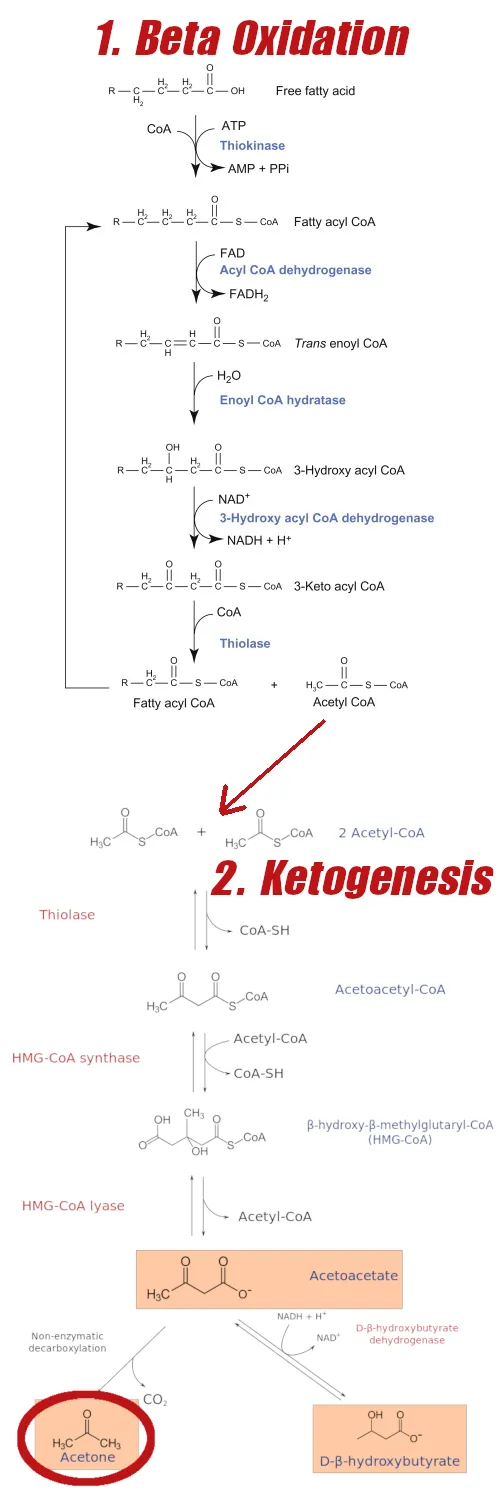
Note that BHB is the primary ketone made, but we were highlighting acetone for another blog post. Sadly, by gaining a pound per year, few every really get to really experience the glory of this process.
What you'll notice is that I never mention anything about fat here, and that's the first big misconception on the ketogenic diet. Barring any serious genetic or metabolic abnormalities, a state of ketosis is effectively generated by actively avoiding carbohydrates to the point where your body must seek an alternative fuel source to get through its day to day operations.
This leaves a lot of room for interpretation, because we haven't discussed fat and protein yet, and that's where I have serious discrepancy with the rest of the keto community.
Some diets will have you in this state of ketosis all of the time. Some will have you in and out of it. There's no one true keto diet, which is what makes this topic so interesting -- but also prone to error or confusion.
Regardless, the one thing in common with the various ketogenic diet strategies is that they force you to rely on an alternative fuel source known as ketone bodies. And for some of us, this is a nearly magical state of existence.
Is your body a tough vehicle to manage?
My single suggestion to you, if you don't want to read this entire post, is to simply ask yourself if your current metabolic state is really working for you, or if your body's been tough to manage. I'm not pushing anything here and I have no book to sell. Run exclusively on carbs or don't, it doesn't matter to me. But if you're sick, fat, or simply tired... then I'm here to tell you that we have this entirely different state of being available to us, and our bodies are extraordinarily well-adapted to be in that state at least a fair amount of time.
So if you're a bit of a mess, then if nothing else, you owe it to yourself to see what's on the other side, because for some of us, it's simply a better way of living, and it often comes naturally without much effort!
Demographic: Different Diets for Different Goals
Yet because of the various takes on keto, it's important to target your demographic.
There are several reasons to go on a keto diet, but the vast majority of people start in an effort to lose weight -- but more importantly, lose body fat. Understand the huge distinction. However, many others begin the diet in order to fight various health conditions, such as seizure disorder, diabetes, heart disease, depression, dementia, or various autoimmune conditions.
Still others do it for athletic reasons - endurance or ultra endurance athletes, for instance, who become "fat adapted" or more "metabolically flexible" are often able to outperform their peers over the long haul. Why spend time sucking down energy gels when you literally have 110,000 calories right there on your ass? We'll get back to that thought.
Meanwhile, many people fall in love with the mental clarity once they've rid themselves of their addiction to carbohydrate -- and yes, it is an addiction. They often stick to it for cognitive performance or even spiritual/religious reasons.
It re-started with seizures... but do you have seizures?

Understand that the ketogenic diet has been around forever, but the more 'modern' resurgence was studied in the early 1900s to fight seizure disorders - and it works amazingly well for that - before there were pharmaceutical drugs. The reason I bring this up is because I see a lot of people following the keto diet as it works best for a five year old boy with epilepsy... when they're really interested in losing fat, and they're failing at their goals because of that.
"Steroid keto" is not "natty keto"
Further, I see a lot of "natty" people (natty meaning not using steroids) following and taking diet advice from guys who are clearly on exogenous hormones such as steroids or TRT. I'm not against men using that stuff, but you need to take any advice from those folks with a huge grain of salt, because steroids simply put you on another metabolic plane of existence. Steroid guy keto is not the same as regular guy keto. Simple fact.
Point being this: because there are so many different ways to do keto, and so many reasons to be doing it, you need to seriously ask yourself what your goals are, and find people who also have those goals. The things one person does to stay mentally clear are not necessarily the same things someone does to get shredded.
My journey to finding keto
This of leads to me and my personal story, but I've decided to make that a separate video so we stay on topic here. The long story short is that I spent about a half dozen years as a fat kid, but fortunately grew out of it and stayed lean with swimming. Eventually in my mid-20s, I could no longer "swim my way out of a bad diet" though.
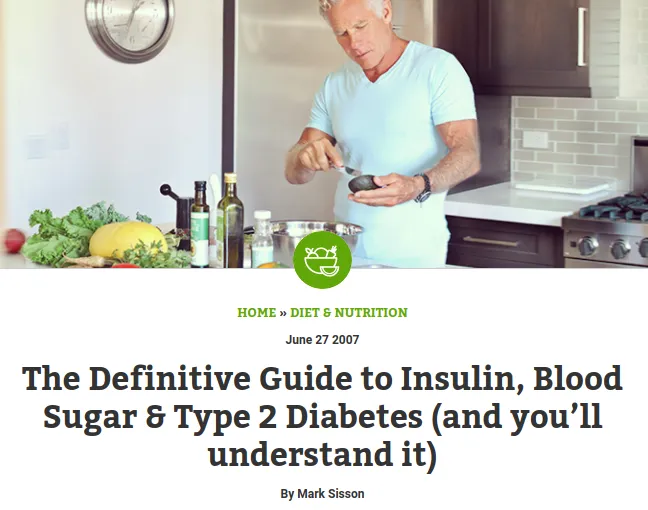
Thanks to Mark Sisson and his incredible article on diabetes and insulin resistance, I found the paleo lifestyle pretty early on in the game -- 2008 -- and it changed my life dramatically. Those ensuing years were some of the fittest and definitely the most active of my life. I'll go into the personal details later, but any time in the past decade when health would get away from me (like when I started experimenting with nonsense like IIFYM), I'd get back to a strict low-carb paleo, and all was right as rain.
SAD -> Paleo Diet -> Keto Diet -> ______...
So just like many others who've been around for a while, I follow the traditional path of SAD (Standard American Diet) -> Paleo -> Keto Diet. I got busy with my business, so I don't know what exactly happened to the paleo movement, but it seems like it got co-opted by unhealthy processed foods and high-carb snacks, which poisoned the well.
Paleo dies one cup of maple syrup at a time, keto thrives without
So while I was messing around with PricePlow's technology, the paleo community split. The smart people got far away from the obesogenic snacks and started digging into the fascinating research of what happens when you remove excessive blood sugar and insulin from your body, and introduce ketones. Oftentimes those ketones are from your own body, as they're produced when you beta-oxidize your own fat. Sometimes they're from dietary fat in the absence of carbs, and sometimes ketones can even come from supplements, but we'll ignore those for now.
When you've forced your body to run long enough without added glucose from dietary carbohydrates, you've depleted the glycogen (stored sugar) in your liver, a switch flips. For some, it's slow, for others, it's fast. And for many -- especially once your electrolyte status is settled -- it's downright amazing.
The research is on the keto diet too hard to ignore at this point
We're getting to the point where the plethora of research on diseases outside of obesity -- from diabetes remission/reversal[1,2] to dementia support[3-9] to joint pain reduction[10,11] to "curing" NAFLD and improving liver function[1] to clearer skin[12] to improved mental status[13-17] -- is getting impossible to ignore. We are a sick society, but we're finally figuring out how to un-sick ourselves... all without the medical establishment's support.
I sometimes ask experts, is it because the ketones are therapeutic, or because blood sugar and insulin are so damaging? The answer seems to be a bit of both, and will skew from one end of the argument to the other depending on the ailment. At the end of the day, it doesn't really matter what exactly causes our collective sickness -- so long as we have a way to avoid the entire mess. And now, we do.
Fat adaptation becomes the only way to live
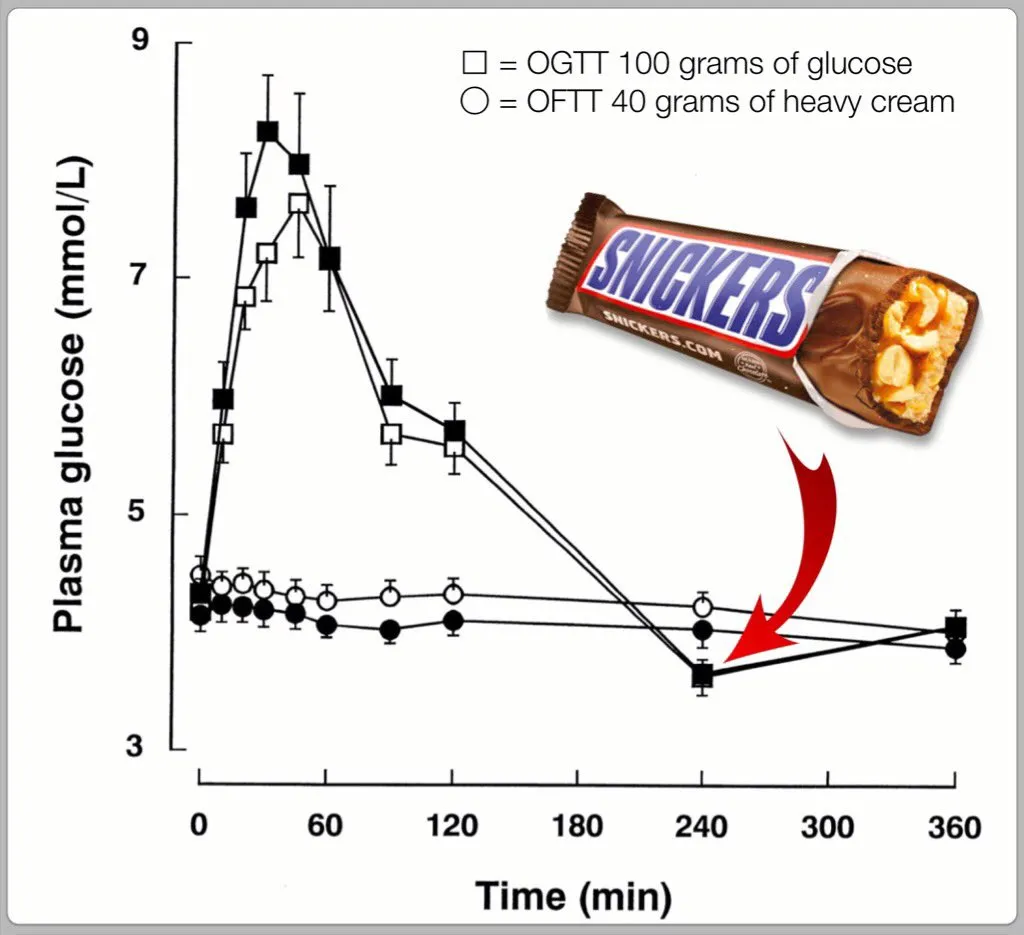
The above is why I ask if your body is working for you or against you, because one thing is for sure: getting "fat adapted" makes life easy. You are no longer a slave. You no longer "get hangry" or "go hypo" - the perpetual ride on the blood sugar roller coaster comes to an end. You are now running on the same fuel that is produced when you don't eat - yet this time, with no painful "switching costs" incurred. The importance of this cannot be understated, but few will understand until they've seen the light for themselves.
And once you realize that, you also realize that it's insanely easy to eat less. The addiction to sugar -- and carbohydrate in general -- begins to wane. You're now in control, and it's not just your diet you're in control of. There's a connection to the body and mind that simply isn't achievable while on "the other side" with the sick folks running exclusively off glucose.
Kiss that appetite goodbye
For many of us, appetite disappears like we've never known in our entire lives. Before, we couldn't even fathom going three waking hours without putting anything into our mouths. Now we can go that many days if need be, and all is right as rain (note that I am not the biggest proponent of long fasts but they're occasionally worth exploring).
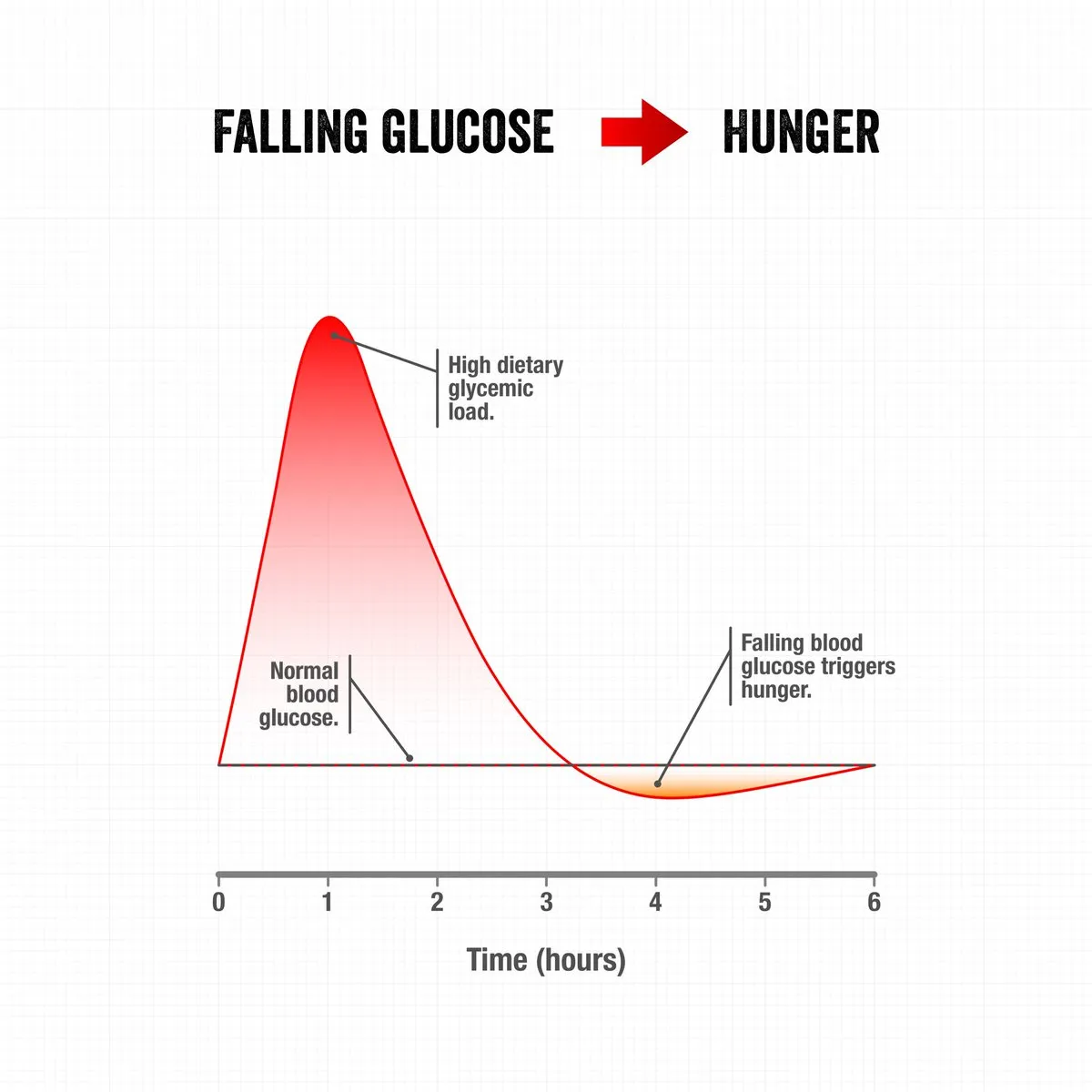
When doing this right -- and many admittedly never get to that point -- eating becomes something natural again. You can actually learn to trust your body and its hunger cues, as you've removed the noise and addiction from the equation. And for many, the weight starts to fly off. Hormones start to regulate. Fat disappears faster than ever.
The naysayer will retort, "Yeah, of course you're losing weight -- you're eating less and possibly eating more protein". I won't fully argue that, but it misses the point anyway. The real point is that losing weight becomes painless. Before this, weight loss was always downright miserable. Especially if you had to lose enough weight that would require greater than three months of strict dieting. Do the keto diet right, and it becomes easy.
Fat loss vs. fat loss prevention vs. fat gain
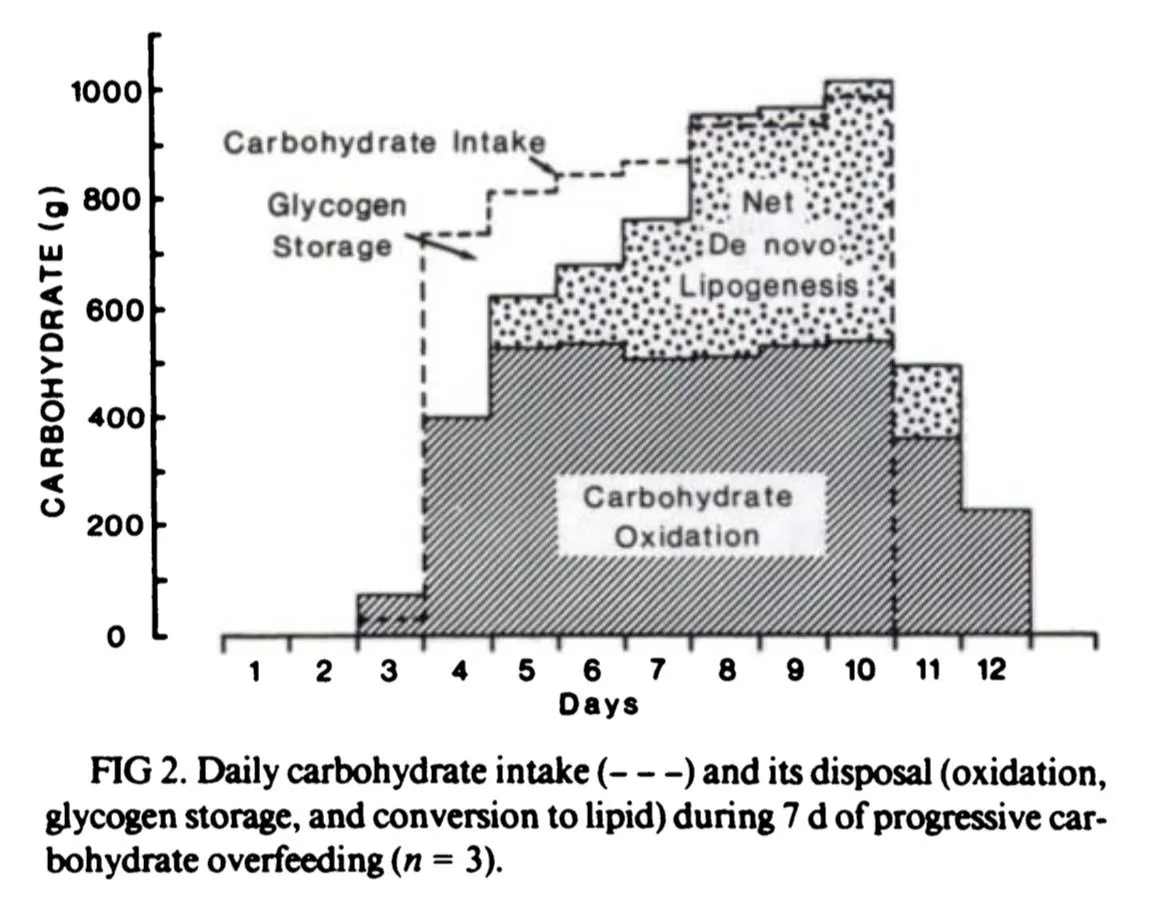
When you eat carbohydrate and spike your insulin, you're sparing fat. There's a misconception that carbs get stored as fat - that's not necessarily the case unless you're really going to town on the candy (like 500g worth of carbs at once).[18] But more realistically, those carbs don't ever let you oxidize your fat. And when you pair those carbs and the ensuing insulin boost with dietary fat, you open the floodgates to fat storage. This is why I believe that it's the combination of carbs and fats that are the true enemy (especially when those fats are industrialized processed seed oils).
My general take is this: eating carbs and healthy fats in conjunction can easily lead to an "overweight crisis". But use industrialized processed seed oils (like canola oil, corn oil, soybean oil, cottonseed oil, safflower oil, etc -- all rich in omega-6 polyunsaturated fatty acids and linoleic acid), and you're off to the obesity crisis. Combined with refined carbohydrates, these are the exact ingredients in processed foods - the crap from boxes and bags in the middle of the grocery store that you shouldn't be eating.
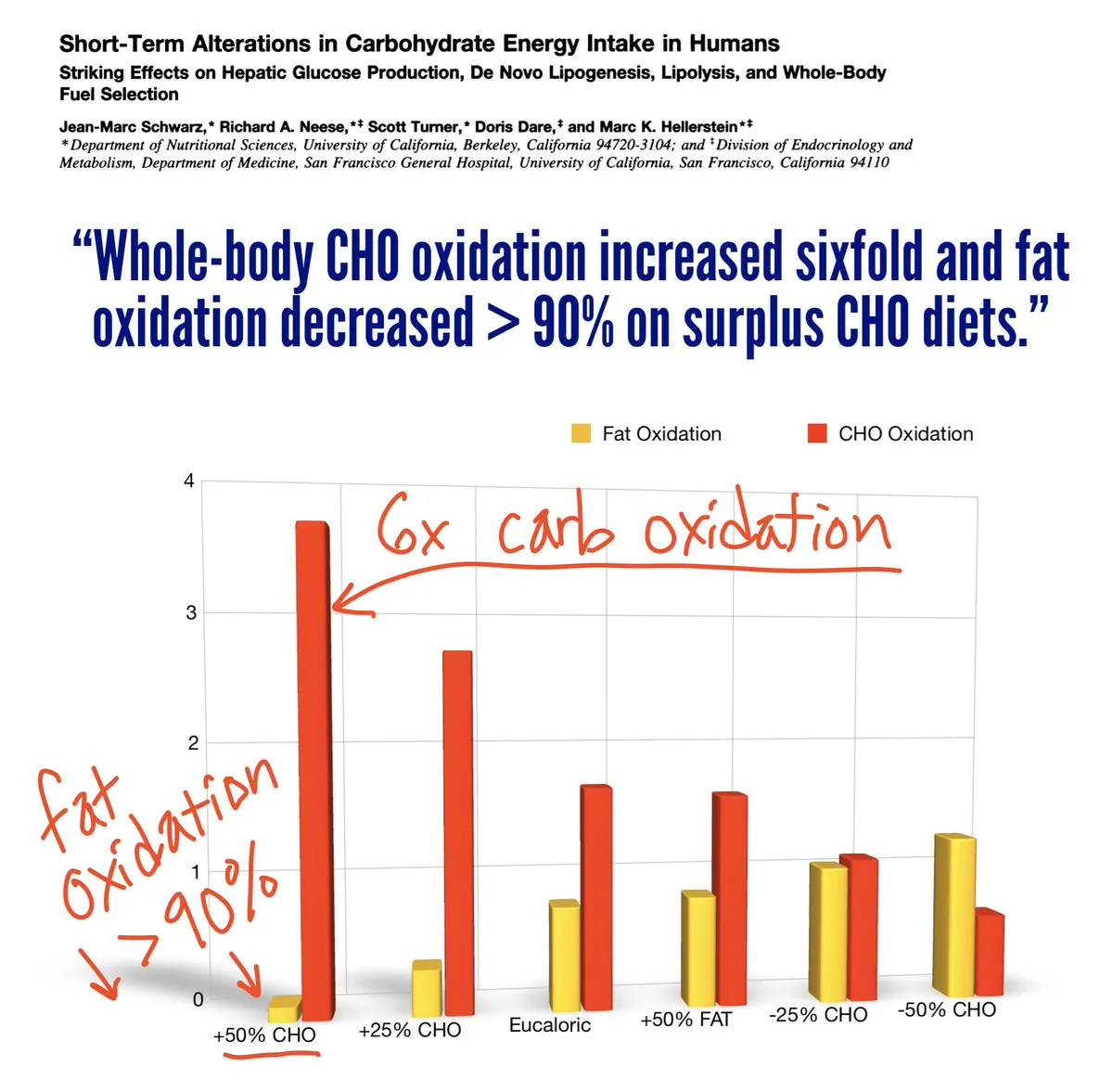
With a well-constructed keto diet, we get rid of the kindling (the glucose/insulin) as well as the gasoline (the PUFAs) that fuel the obesity crisis, and get back to a regular metabolic state.
So unlike many low-carbers, I'm actually not that against a strict low-fat diet... for periods of time. Instead, I'm against fats + carbs together, eating too much sugar (in non-athletic situations), and I'm really against the processed seed oils.
While low-fat dieting absolutely works, it is almost never easy for any long period of time. This is why I mentioned following the correct demographic. If you're obese, the strategies that an already-fit bodybuilder can deal with for 10 weeks simply do not apply to you during a ten month or even ten year diet.
My long-winded point is this: while a low-fat diet is almost never easy for any amount of time, a well-constructed ketogenic diet is unimaginably easy is for those who figure it out.
The only logical way out of obesity
Regarding obesity, I'll put it this way - almost nobody's getting obese from eating an ultra low carb diet devoid of seed oils. Again, we need to define our demographic. Obese and extremely overweight individuals have a long road ahead, and traditional short-term diet tricks that do not address the core root of appetite, hunger, and even addiction do not work.
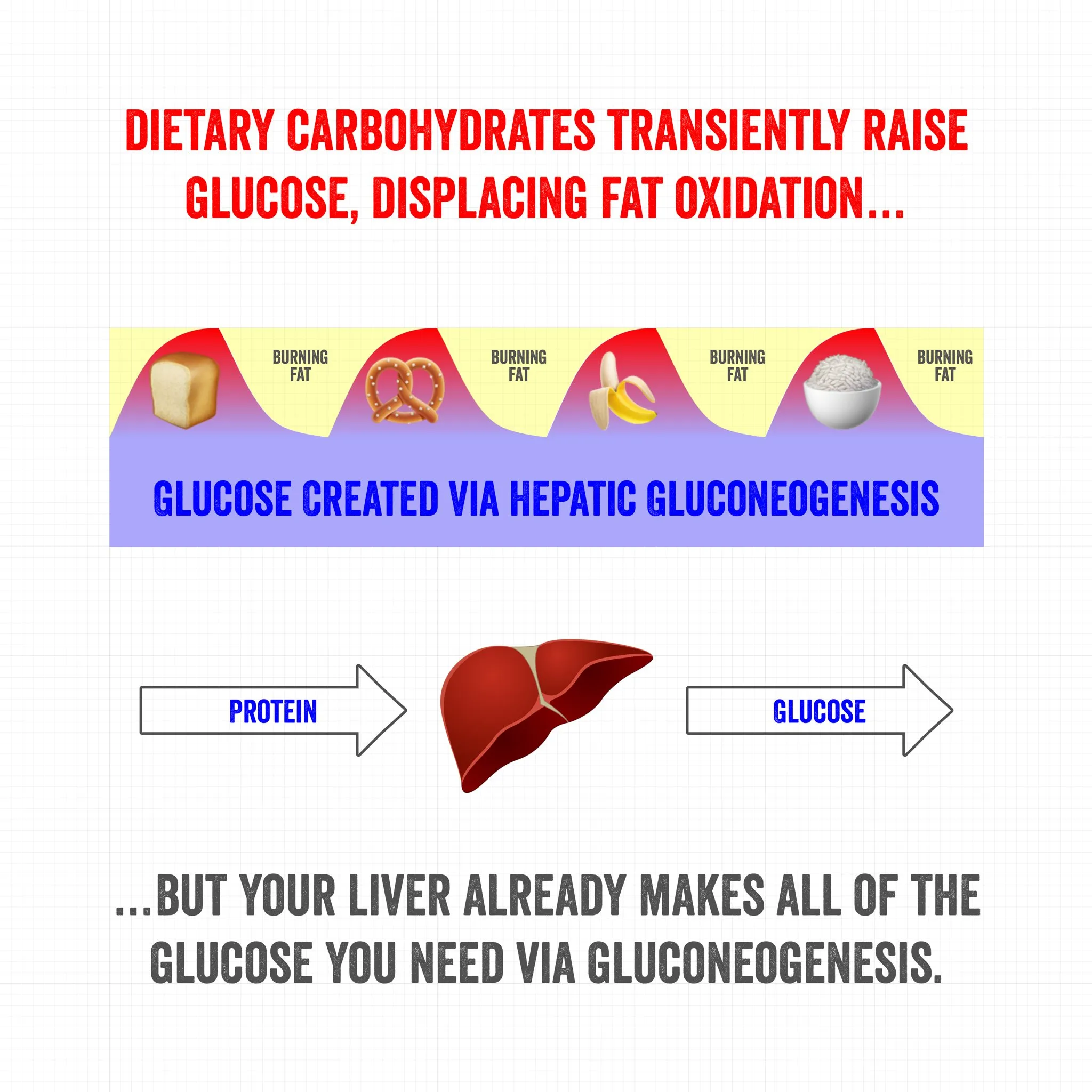
Many of us have damaged ourselves for years, and it will take just as many years to undo that problem. This is where "moderation" and "calories in vs. calories out" doesn't work. If you take your same SAD diet and just adjust calories down, your body will simply downregulate its metabolism and you'll lose weight slower than the math would have dictated. Additionally, too many low-calorie dieters drastically under-eat protein, which causes another series of problems such as unrelenting hunger.[19,20] In that situation, exercise isn't going to help as much either, because it's just going to trigger hunger. You'll simply be miserable -- which every dieter who has taken this approach knows.
No, a drastic situation like obesity requires drastic measures, and that often means intense amounts of fasting (or even protein-sparing modified fasting) or extreme carbohydrate abstinence. The complete opposite of how you got there, which is only logical. These solutions -- whether you call them "extreme caloric deprivation" or "keto carnivore" -- both land you in the state of ketosis: running off of fat. And hopefully it's your body's own fat, because you quite honestly don't need a ton of fat from diet at this point. Just enough to get by and be happy.
The truth about my keto journey

The truth is, I started messing with keto just so I could properly review the supplements targeted towards it. My untracked mostly-paleo diet was "OK enough" that I didn't have a personal reason to change until I had a business reason. But then came the beneficial effects of the diet.
The fat loss was great, but let's be honest - it was the mental clarity and oddball health improvements that sold it for me.
My 3:30pm nap? Gone.
Sore knuckles I'm always cracking? Not anymore.
The cramp I have in my foot half the time when I wake up? Hasn't been back.
The weird dyshidrotic eczema I had recently developed on my middle finger? All cleared up!
I didn't even think I had many health problems, and then I tried this diet and these semi-annoying but not-life-critical issues cleared up. How weird!
A diet that's easy to fail if you follow the "rules"
Yet, let's be further honest -- those first two stabs I took at keto were failures because I was making the same mistakes most others do - keeping protein too low and losing strength and muscle mass. And I know I'm not alone there.
Everything I've said so far has been incredibly positive and enthusiastic - removing dietary carbohydrates and generating ketones seems to create a far healthier metabolic state for most individuals. But this transition, when followed as dictated by the general "rules of thumb" is not without its problems.
For instance, let's say the typical ketogenic diet is 75% fat, 20% protein, and 5% carbs. This is what's known as a 3:1 ratio -- 3g fat for every 1g carb + protein. At the 2600 calories I need to maintain my weight on moderate activity (5x/week), this equates to:
220g fat
130g protein
30g carb
Does anyone see a problem here?!
Protein is way too low!
In my opinion, this is the bare minimum someone with ~145lbs lean body mass like myself should be getting.
Sure, these numbers indeed get me well into ketosis, especially with intermittent fasting. I read everywhere to "chase results not ketones", but I did want to have my ketones over 1.0 so that I could properly review supplements. I now regret that. Those reviews would have been just as good if I had slightly less ketones circulating.
So I kept protein artificially low, and I suffered because of it.
My Keto Time Machine
Two things I wish I had known:
2600 calories is not enough to maintain my body weight in ketosis. The "calories in calories out" (CICO) model is horribly flawed for many of us.
Even when moving to the 2900 calories I need to maintain body weight when in ketosis, protein would still be way too low at those ratios!
To make matters worse, this diet as designed above requires extreme amounts of tracking, because eating that much fat without much protein alongside it is a completely unnatural pain in the ass. Additionally, the lack of appetite discussed earlier meant that I could easily go with less. Not eating for a day or two is fine, your body knows how to preserve lean mass. But if doing it too often, and not training hard, you're not going to look good. That's exactly what happened to me. And I know it happened to others.
KetoCon 2017: An eye-opening experience
Early on in this journey, my wife (Jill) and I went to KetoCon 2017, which is nearby in Austin. It was a great time, and we got to hear Dr. Benjamin Bikman and Dave Feldman speak for the first time. Unbeknownst to me, Dr. Bikman would open a door to many major life changes, so the trip was a great one.
However, Jill noticed something that had slipped me: very few people looked healthy. This isn't meant to trash anyone, and I know that many of the people there were diabetics who were still on the edge of trying the diet. But when we go to health conferences, we expect to see virule individuals. Lean people with muscle tone and some level of sex appeal. This conference was honestly lacking that. Something was wrong.
And over the course of time and in my own failures mentioned above, I realized that almost nobody was doing it right.
Don't fear protein!!
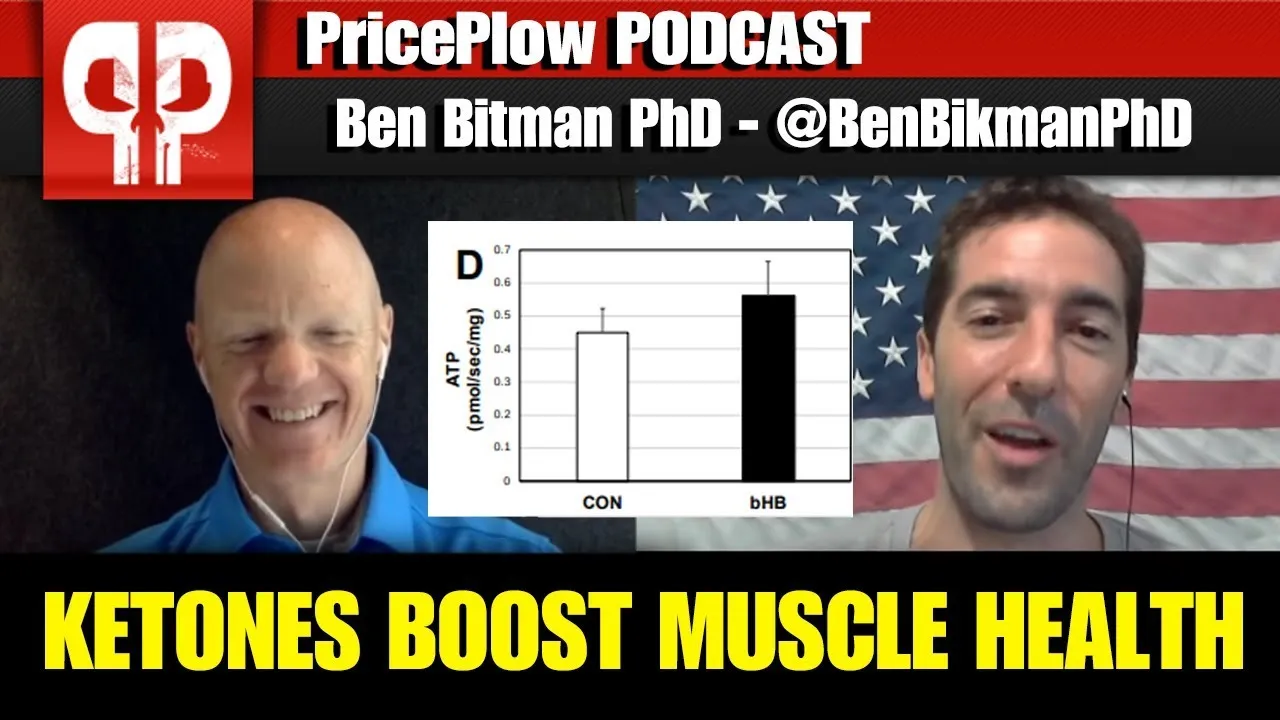
One of my first wake-up calls was during a YouTube interview with Dr. Bikman, when he said something so simple: "prioritize protein". Of all of the brilliant things he said in that incredible interview, that's the one that stuck with me.
I mean, seriously, what in the hell had I been doing the past year? I was already lean enough. Why in the hell do I need so many ketones circulating?! Why would I be afraid of this "gluconeogenesis" thing from "consuming too much protein" (a theory that's terribly flawed in the first place) or from additional glucagon getting released?!
I've always known that my body responds best to very high protein intake. You think this new metabolic state changes that? No! In fact, it makes it even more important, if you ask me.
Knowing what I know now, a high-protein, lowish-carbohydrate diet will have you metabolically flexible. And that's a great place to be. I can run on glucose and I can run on fats. High protein diets are safe, and they're great for muscle mass and performance. Something I need to get back.
Don't be a "butterchugger"
Meanwhile, we see a ton of keto dieters doing whatever it takes to keep their fat intake high. Adding butter to coffee. Spoonfuls of disgusting mayonnaise. Fat bombs and coconut oil everywhere.
Seriously, what in the hell kind of clown world nonsense is that?
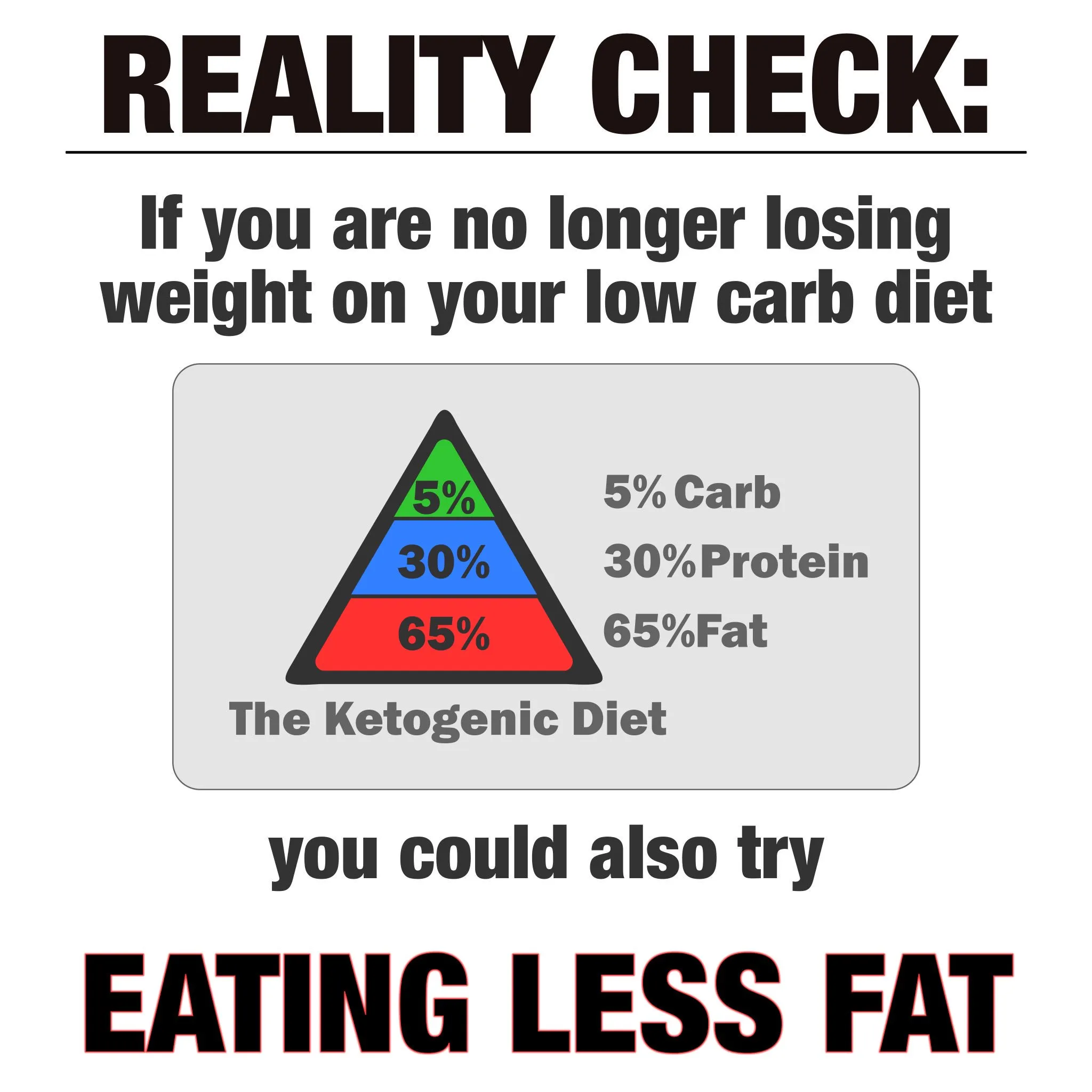
At this point, coconut oil is basically the "white flour equivalent" for these people.
Let me give you a hint about something: you already have 100,000 calories of butter right there on your ass! Why in the world are you adding more to your coffee? Just drink it black or fast for god's sake! Holy hell, if you're trying to lose weight, you do not need fat for the sake of eating fat. You have plenty! You need protein!
When you see animals hunt, do they only eat the fat parts of their kill? Hell no.
Did your great grandmother who had eight children eat sticks of butter to make sure her Precision Xtra read 1.0 or greater? No, she did not.
So why in the hell are you doing that?! The answer is because you're following the wrong type of keto diet!
Remember when I said to follow the correct demographic? And remember that 3:1 ketogenic ratio many people utilize? Well, that was pioneered for children with epilepsy!! Indeed, for them, they do need absurdly high fat and moderately low protein. It works wonders for them and their seizure symptoms. It's what they did before big pharma came out with tons of drugs, and it's what works when those drugs don't.
But I'm guessing that you don't have seizures. So why in the hell are you eating a diet like a 5 year old boy with epilepsy?! Here's a hint: you shouldn't be. If you've ever eaten a spoonful of mayonnaise to stay in ketosis in an effort to lose weight, you're doing literally everything wrong. Just stop it right now and go eat a steak.
These keto snacks are borderline ridiculous
Meanwhile, sugar-addled Westerners looking to go low-carb are so addicted that they cannot even fathom life without putting something sweet in their face. So the first thing everyone has to do when looking at this diet is to search for recipes, especially those keto desserts. And they're nearly all full of fake bullshit.
Listen, I like a lot of these recipe folks, but this whole "keto treats" thing is rotten to the core.
Those artificial sweeteners are a bridge, but if you rely on them for too long, you're going to fall off this wagon and never truly be free. I guarantee you that.
Artificial or not... stevia or sucralose... these artificial sweeteners keep you addicted. They elevate your insulin and they spike your dopamine levels every time you eat them. Ask yourself, how long can you really go without putting a single sweet thing on your tongue? You probably haven't gone more than 24 hours in your entire life, depending on how your parents fed you.
Treats for the transition!
If you need these treats to get you off of carbs and sugar, then that's great. By all means, go for it. But remember, they're for the transition!
Yet if you stick to them in perpetuity, you're going to backslide. I promise you that. When you eat fake sugar, your pancreas releases insulin, your brain expects real carbs, and you're going to stay hungry and confused.
Screw that nonsense. Screw the recipes. Screw these sweets.
Many of you may know the next step in this evolution and where this is heading:
It's time to eat meat.
Turns out, some people did do it right
In 2017, it seemed like nobody had nailed it yet. In early 2018, I spent much of that time out of the keto world due to business responsibilities and our newborn daughter.
Upon my return to the low-carb movement, something awesome had happened. Protein was back in vogue in the keto community. But even more importantly, meat was back. Not pathetic nonsense like chicken or turkey, but real deal meat -- red meat.
Red meat is back!
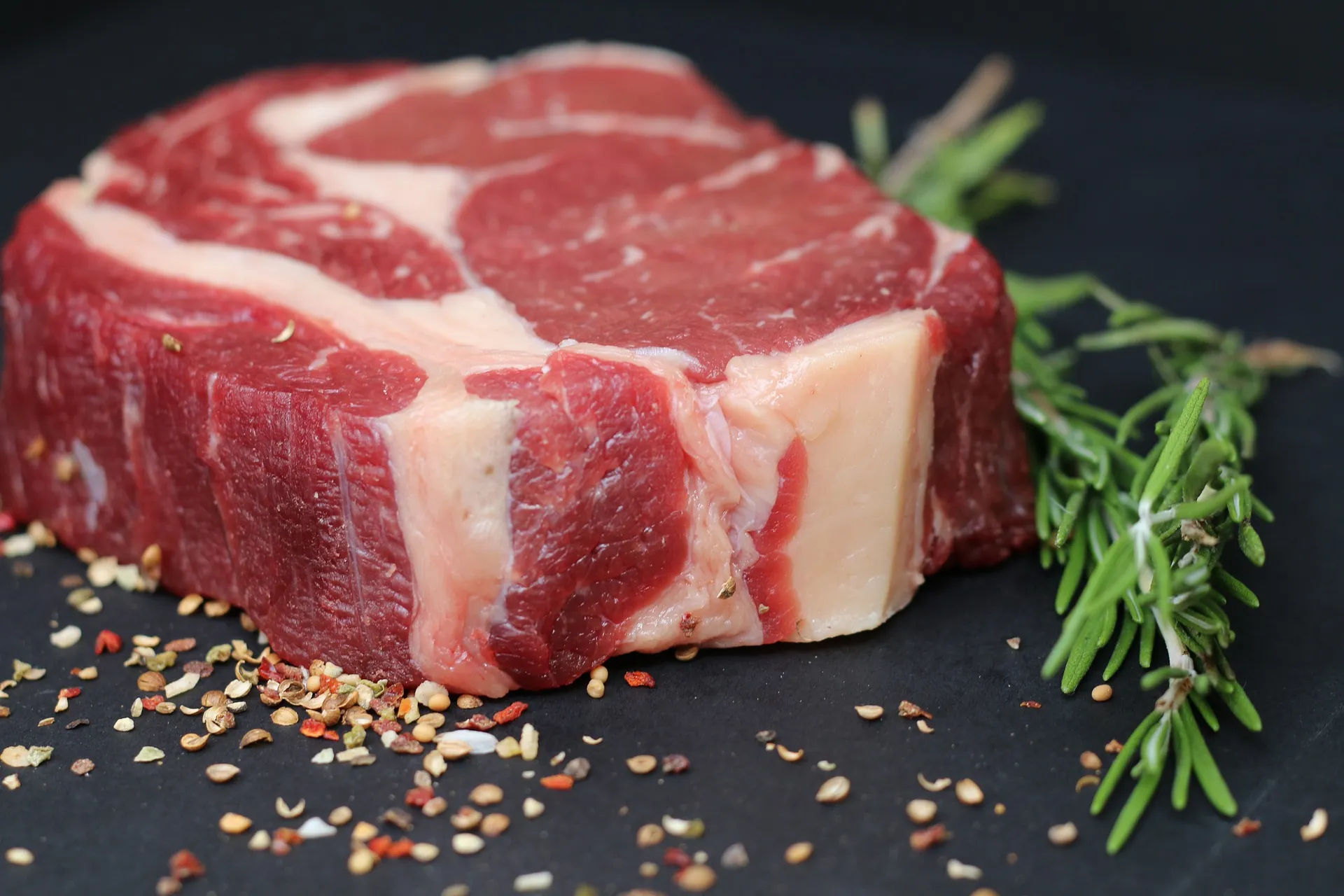
Years ago, Jill remarked that I looked and performed better when eating lots of beef. She would know, too, since she's the one who see me shirtless all the time (I rarely wear a shirt when off camera). I never forgot that, but I didn't always adhere to it.
Then one day, I realized something completely embarrassing: my 11 month old daughter had eaten more beef than I did that day. Now, while she's quite the machine at the dinner table, there is simply no excuse for that.
At the same time, this entire carnivore diet movement had been unfolding. Only meat, fish, and eggs. No treats, no sweets, no spoonfuls of mayo. And more people than ever before have been having life-changing results on it.
Doing some research, it all began to make sense to me. First off, I'm Italian. Italy literally translates to Land of Young Cattle. We are beef eaters. It's in my DNA.
Second, all of the shills who say you have to eat "heart healthy" whole grains (which literally make me feel terrible) are the same monsters who've been claiming that we shouldn't be eating red meat and eggs in the first place! They've been telling us that since 1970. We listened, and we got sicker.
Rethinking the obesity crisis: is it really the carbs?
If you look at the numbers, there are two major changes we've made since the obesity crisis began in 1970, and they're not related to overall carbohydrate intake. They're actually
the reduction of red meat, and
the acceleration of industrialized processed seed oil consumption.
How's that working out for us?
So, inspired by my daughter, I started eating more meat. A lot more meat. And within two months, I looked and felt better than I had in a decade. To the point where I would finally go shirtless on this big bad internet.
Things finally started to click.
The great awakening
All my life, especially as a swimmer, I had nothing but carbs thrown at me. I don't blame my parents, teachers, or coaches -- they didn't know any better either. The 90s were a great decade, but a bad decade to be under the influence of nutritional propaganda. Anyway, the fact remains - never once did any text ever mention the fact that you could survive just fine without dietary carbohydrates. Never once was the existence of ketones ever mentioned. Growing up in the 90s, it was carbs carbs carbs. And more carbs.
Yet, looking at the research, it's quite clear that the medical establishment was very well aware of the ketone and the eye-opening, cognitive impacts of the state of ketosis. It's jarring.
Now, I'm not sure how everyone else handles this "great awakening". Maybe you hadn't thought about it, or maybe you just don't care, so long as you lose some weight and feel good. But a guy like me, we start asking questions. If they lied by omission about this, what else are they hiding from us? What else are they lying about? And that becomes a very dangerous question, because the answer is this: nearly everything. And I mean everything.
To put it simply, the same publications and politicians who tell us not to eat meat, and tell us to eat 6-11 servings of grains per day (alongside those toxic seed oils) and a vegetable-rich diet, are also the same individuals who put us in a state of perpetual war, endless debt, and push more drugs than the eye can see. Is nobody else connecting these dots?!
It gets so scary that you can't really worry about all of those lies. All of those coverups. All of those omissions. All of that evil. We can't spend all day getting bogged down by these crooks, because we have to approach one problem at a time. So you need to focus on yourself, your health, and your family. Otherwise you can get caught up in a world of craziness, and we have a public health crisis at hand. This is enemy #1.
Fix diet, and most (not all) medical issues go away. Fix medical issues, and tons of money problems go away. Fix medical and money problems, and happiness returns. This is the keystone everyone's been searching for.
Living outside of the medical system
Discovering the truth is not without its uncertainties.

As many of our followers know, when you eat like this -- whether or not it's heavy in meat or heavy in fat -- you're now living outside of the medical system and its "standard of care". I discuss this in my story about LDL Cholesterol, and how my blood work simply doesn't fit the norm. My LDL -- which they call the "bad cholesterol" -- is high, but my HDL is too, and my triglycerides are low.
I have literally no cardiovascular disease risk factors, except for the one they can change with drugs -- drugs that they tried to give to me. It turns out that I'm in a very low risk group for heart disease, even with high LDL, because LDL is a weak risk factor when taken on its own.
The simple fact is, we are running on ketones in a world driven by glucose, and so much of the data doesn't apply to us.
Because of that, we have to pave our own way. We have had many failures with many lessons learned -- from protein scaring to butter chugging. But we've also had successes, too, such as bringing the red meat back and understanding the deadliness of garbage like soybean oil.
But at the same time, I struggle to maintain any diet -- especially this one -- without properly tracking things. Getting to 15% bodyfat and relatively standard strength is pretty easy for me, but anything better becomes a challenge. Can I perfect it? Let's find out.
If you're still here, thanks for reading.
References
- Hallberg, Sarah, Volek, Jeff, et al; "Effectiveness and Safety of a Novel Care Model for the Management of Type 2 Diabetes at 1 Year: An Open-Label, Non-Randomized, Controlled Study"; Diabetes Therapy; April 2018, Volume 9, Issue 2, pp 583–612; https://link.springer.com/article/10.1007%2Fs13300-018-0373-9
- McKenzie, Amy L, Jeff S Volek; Stephen D Phinney, et al; “A Novel Intervention Including Individualized Nutritional Recommendations Reduces Hemoglobin A1c Level, Medication Use, and Weight in Type 2 Diabetes”; JMIR diabetes vol. 2,1 e5; 7 March 2017; https://www.ncbi.nlm.nih.gov/pmc/articles/PMC6238887/
- Stoykovich, Seth, and Kelly Gibas; “APOE ε4, the door to insulin-resistant dyslipidemia and brain fog? A case study”; Alzheimer's & dementia (Amsterdam, Netherlands) vol. 11 264-269; 14 Mar. 2019; https://www.ncbi.nlm.nih.gov/pmc/articles/PMC6423699/
- Cunnane, Stephen C, et al; "Can ketones compensate for deteriorating brain glucose uptake during aging? Implications for the risk and treatment of Alzheimer's disease"; Annals of the New York Academy of Sciences; 2016 Mar; 1367(1):12-20; https://www.ncbi.nlm.nih.gov/pubmed/26766547
- Cunnane, Stephen C, et al; “Can Ketones Help Rescue Brain Fuel Supply in Later Life? Implications for Cognitive Health during Aging and the Treatment of Alzheimer's Disease”; Frontiers in Molecular Neuroscience; vol. 9 53; 8 Jul. 2016; https://www.ncbi.nlm.nih.gov/pmc/articles/PMC4937039/
- Taylor, Matthew K et al; “Feasibility and efficacy data from a ketogenic diet intervention in Alzheimer's disease”; Alzheimer's & Dementia (New York, NY); vol. 4 28-36; 6 Dec. 2017; https://www.ncbi.nlm.nih.gov/pmc/articles/PMC6021549/
- Croteau, E, Cunnane, Stephen C, et al; "Ketogenic Medium Chain Triglycerides Increase Brain Energy Metabolism in Alzheimer's Disease"; Journal of Alzheimer's Disease; 2018; 64(2):551-561; https://www.ncbi.nlm.nih.gov/pubmed/29914035
- Croteau, E, Cunnane, Stephen C, et al; "A cross-sectional comparison of brain glucose and ketone metabolism in cognitively healthy older adults, mild cognitive impairment and early Alzheimer's disease"; Experimental Gerontology; 2018 Jul 1; 107:18-26; https://www.ncbi.nlm.nih.gov/pubmed/28709938
- Castellano, C, Cunnane, Stephen C, et al; "Lower brain 18F-fluorodeoxyglucose uptake but normal 11C-acetoacetate metabolism in mild Alzheimer's disease dementia"; Journal of Alzheimer's Disease; 2015;43(4):1343-53; https://www.ncbi.nlm.nih.gov/pubmed/25147107
- Youm, Yun-Hee, D'Agostino Dominic, et al; “The ketone metabolite β-hydroxybutyrate blocks NLRP3 inflammasome-mediated inflammatory disease”; Nature medicine vol. 21,3 (2015): 263-9; https://www.ncbi.nlm.nih.gov/pmc/articles/PMC4352123/
- Masino, Susan A, and David N Ruskin; “Ketogenic diets and pain”; Journal of Child Neurology; vol. 28,8 (2013): 993-1001; https://www.ncbi.nlm.nih.gov/pmc/articles/PMC4124736/
- Paoli, A, et al; "Nutrition and acne: therapeutic potential of ketogenic diets"; Skin Pharmacology and Physiology; 2012; 25(3):111-7; https://www.ncbi.nlm.nih.gov/pubmed/22327146
- Phelps, J, et al; "The ketogenic diet for type II bipolar disorder"; Neurocase; 2013; 19(5):423-6; https://www.ncbi.nlm.nih.gov/pubmed/23030231
- Pacheco, A, et al; "A Pilot Study of the Ketogenic Diet in Schizophrenia"; American Journal of Psychiatry; may 1965; 121:1110-1; https://www.ncbi.nlm.nih.gov/pubmed/14283310
- Kraft, Bryan D, and Eric C Westman; “Schizophrenia, gluten, and low-carbohydrate, ketogenic diets: a case report and review of the literature”; Nutrition & Metabolism; vol. 6 10; 26 Feb. 2009; https://www.ncbi.nlm.nih.gov/pmc/articles/PMC2652467/
- Evangeliou, A, et al; "Application of a ketogenic diet in children with autistic behavior: pilot study"; Journal of Child Neurology; 2003 Feb; 18(2):113-8; https://www.ncbi.nlm.nih.gov/pubmed/12693778
- Herbert, M, Buckley, J; "Autism and dietary therapy: case report and review of the literature"; Journal of Child Neurology; 2013 Aug; 28(8):975-82; https://www.ncbi.nlm.nih.gov/pubmed/23666039
- Acheson, K J, et al; "Glycogen storage capacity and de novo lipogenesis during massive carbohydrate overfeeding in man"; The American Journal of Clinical Nutrition; Volume 48, Issue 2; August 1988; Pages 240–247; https://academic.oup.com/ajcn/article-abstract/48/2/240/4694971
- Paddon-Jones, D, et al; “Protein, weight management, and satiety”; American Journal of Clinical Nutrition; 87(5):1558S-1561S; May 2008; https://www.ncbi.nlm.nih.gov/pubmed/18469287
- Simpson S, Raubenheimer, D; “Obesity: the protein leverage hypothesis”; Obesity Reviews; 6(2):133-42; May 2005; https://www.ncbi.nlm.nih.gov/pubmed/15836464 (Archive)
- Sisson, Mark; "The Definitive Guide to Insulin, Blood Sugar & Type 2 Diabetes (and you’ll understand it)"; Mark's Daily Apple; June 27, 2007; https://marksdailyapple.com/diabetes
Archived Comments
Just wanted to say thanks for a Great article
I've done a very similar journey but am not lean but have been getting healthier since I've been keto and more and more carnivore-ish.
I'm now down the anti PUFA side of things and wondering about the saturated fat and protein ratios. I tried the PE diet and didn't find it work for me as I think I need a bit more fat...
Thanks!! Many claim to do far better on a higher-fat diet. One theory I love, and you should find this video, is the "Lipivore" theory from L. Amber O'Hearn. It basically talks about the importance of animal <em>fats</em>, not just animal proteins.



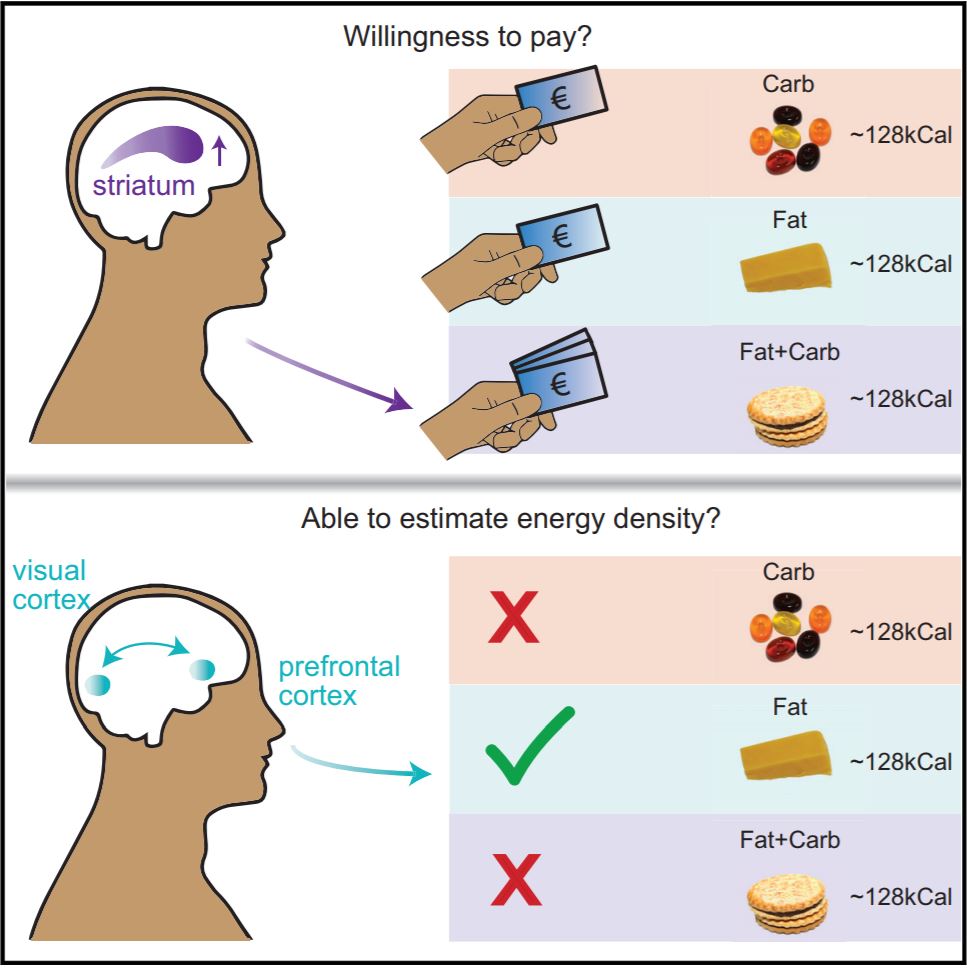
Yvonne •